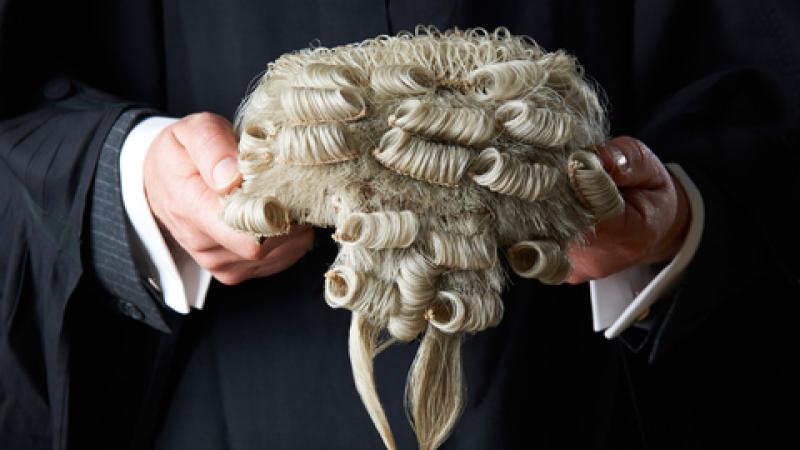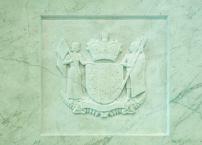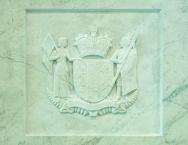
King’s Counsel Round – The Bar Association’s Process
Following the Attorney-General’s announcement recently of a King's Counsel round opening on 1 March 2024, we are setting out the New Zealand Bar Association | Ngā Aorangi Motuhake o te Ture's process for consideration of KC candidates. The Bar Association has followed this process for the last few years and will likely follow it again for this round.
Appointments are made on the recommendation of the Attorney-General and with the concurrence of the Chief Justice following consultation by the Attorney-General (through the Solicitor-General) with the New Zealand Bar Association and the New Zealand Law Society.
The Bar Association introduced a process several years ago to ensure independence and objectivity. The process involves assessments and recommendations by an independent advisory group only after the group has assessed each candidate carefully. The criteria for appointments can be found on the Crown Law website, along with the application form.
The members of the Bar Association’s KC Advisory Group (Advisory Group) are drawn from KC ranks around the country. It comprises 12-16 members and includes specialists who can assess applications from all areas of practice. To ensure objectivity, we avoid members of the group assessing applicants who come from the same geographical location.
The process is as follows:
- Applications are sent to the Solicitor-General together with the application fee. The application form is available on Crown Law’s website.
- The Solicitor-General uploads all the applications to a confidential database that can be accessed only by the members of the Advisory Group, the Bar Association Executive Director, the NZLS KC assessors (described below) and heads of bench, and a senior NZLS General Manager.
- The Bar Council delegates authority to the President to appoint the Advisory Group. In making the appointments, the President considers several factors including (but not limited to) regional representation, diversity, and practice areas.
- At the outset, the Advisory Group requires all its members to declare any interests. They record any relationship they may have with the individual candidates (both professional and personal) and how that might colour their view. The Advisory Group considers this information, and if the declared interest is strong enough to suggest even a perception of bias for or against a candidate, those who have declared an interest may be asked not to comment on the candidate involved.
- The Advisory Group divides into two sections; civil and criminal. Their members review all applications. Members of the group practising in the criminal area review the applications from those practising primarily in that area and, similarly, members practising primarily in civil litigation review applications from those practising in that area.
- Each member of the Advisory Group is given approximately six to eight applications to review. Generally, the applicants that each advisory group member is assigned to review do not come from the same geographical location as that of the advisory group member.
- Advisory Group members read the applications, the cases and publications that applicants refer to in their application forms and contact the candidates’ referees.
- In the first instance, the civil and criminal members of the Advisory Group meet separately, by AVL, to discuss the candidates they are reviewing.
- All members of the Advisory Group then meet, by AVL, to discuss initial views.
- At that meeting, informal shortlists tend to be prepared, and further enquiries are often assigned.
- The Advisory Group then meets in person over a full day to discuss all candidates, with the shortlists in mind.
- At the conclusion of that meeting, a draft list of applicants who have the support of the Bar Association is prepared.
- The President and another member of the Advisory Group then meet with the NZLS assessors and the Solicitor-General. The NZLS assessors comprise two of the most senior King’s Counsel and are supported by a senior NZLS officer. Those King’s Counsel and that officer will by this time have conducted their own comprehensive process.
- At the meeting, the NZBA and NZLS discuss all the candidates on their respective shortlists.
- Following the meeting, the Advisory Group meets again, by AVL, to discuss anything arising from the meeting. Further enquiries may be made.
- The NZBA and the NZLS then each submit lists of the candidates who have their support to the Solicitor-General.
- The Solicitor-General provides these lists and discusses them with the Chief Justice. By this time, the members of the judiciary will have conducted their own comprehensive consideration process.
- The Attorney-General, in consultation with the Chief Justice, will then decide upon the successful candidates.
The Bar Association maintains absolute confidentiality and privacy throughout its process. The only people who see, or are told about, the applications are the members of the Advisory Group, the Executive Director and those consulted during enquiries about candidates.
The candidates are not known to, or discussed with, the wider Bar Association Council or the NZBA Secretariat. All application papers are destroyed at the end of the process.
If you have any questions about the process, please feel free to contact our Executive Director. However, to ensure objectivity and independence in deliberations, please note that comments about or recommendations for individual candidates will not be considered outside the process described above. They will not be given to the President or the Advisory Group.
Maria Dew KC
President
15/6/22
(updated 29 February 2024)






